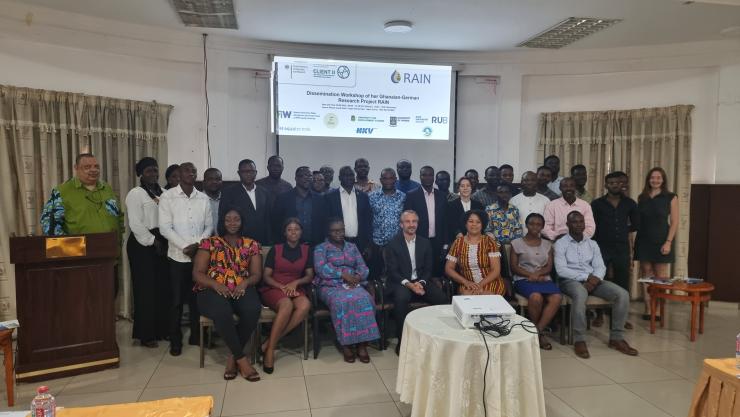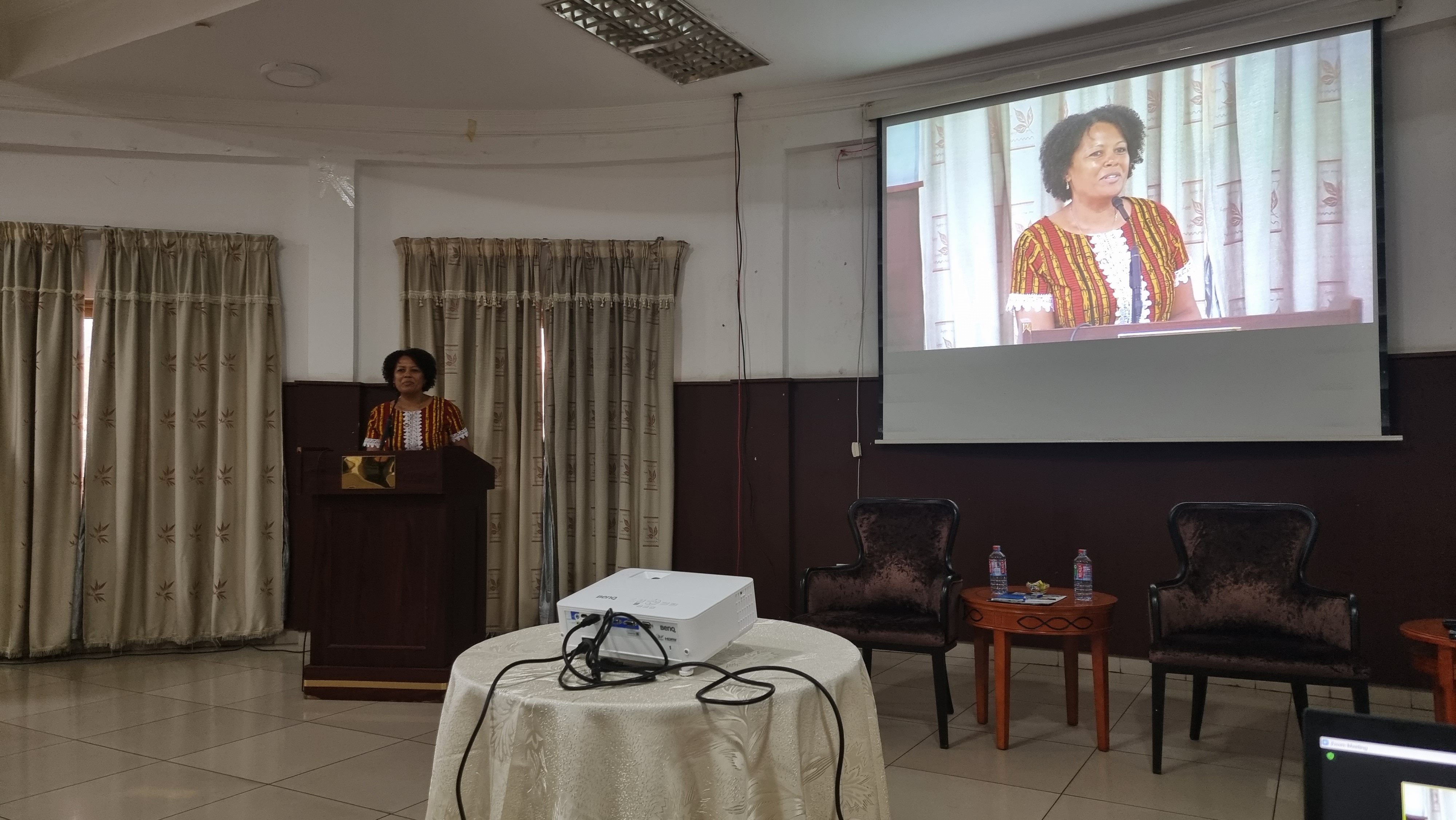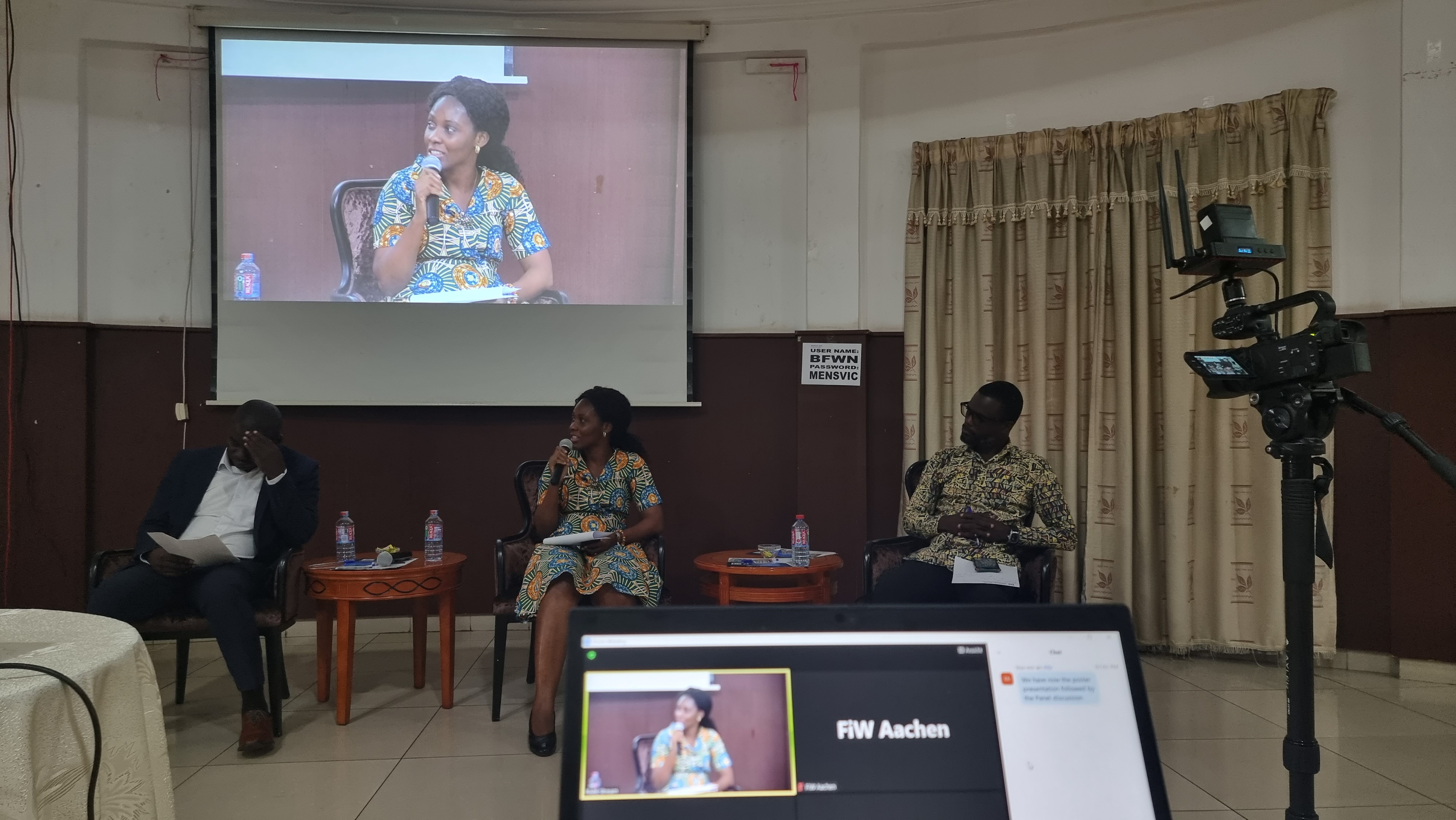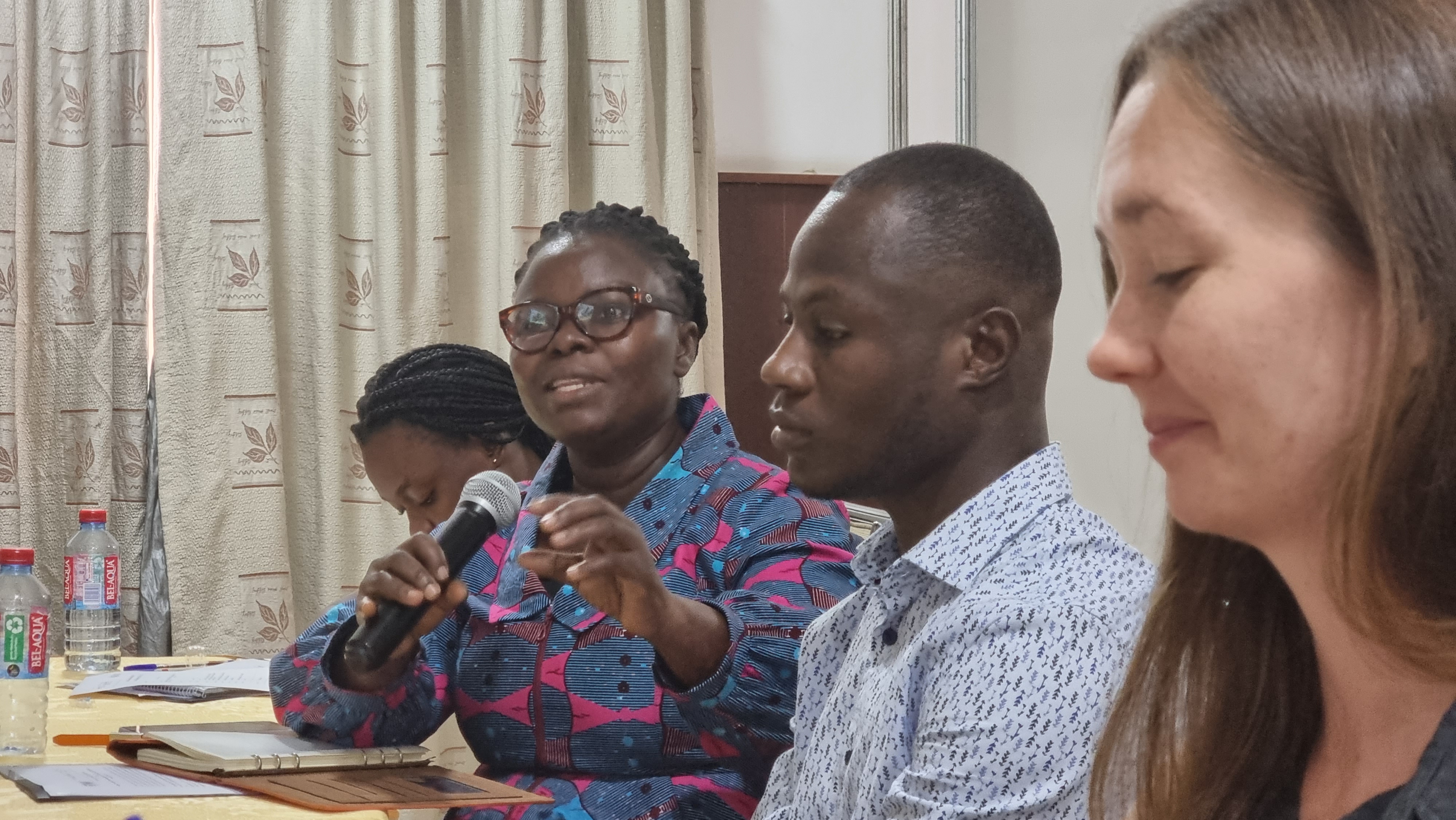

RAIN –Dissemination workshop in Accra
Over the past three years, the Research Institute for Water Management and Climate Future (FiW), the Chair of Urban Water Management and Environmental Engineering at the Ruhr University Bochum, Manotura GmbH&Co.KG, the Institute for Environment and Sanitation Studies (IESS), the Department of Agricultural Engineering (DAE) of the University of Ghana, the University of Development Studies Tamale, Envaserv Research Consult, and the Accra Sewerage Improvement Project (ASIP) as part of the Accra Metro Sewerage Unit (AMSU) have been working on various solutions in the field of water management, water reuse climate adaption, and early warning systems.

At the workshop organised by the IESS and FiW, the solutions developed in the RAIN project were first presented and discussed. On the basis of the results of a water management modelling, Manuel Krauß from FiW explained how existing reservoirs in the urban area of Accra can be used for irrigation and human consumption against the background of constant population growth. The early warning systems for drought and flood for two catchment areas in Ghana, developed in cooperation with HKV Consultants, were presented by Rona Michaelis (FiW). These systems are now being tested and can be used by the responsible authorities for the first time. In addition, a sustainable solution for the safe use of polluted surface waters was presented by Sophie Krüger (RUB). By means of cost-efficient bio-carbon-based filter systems, the load of pathogens in irrigation water could be reduced and, taking into account suitable irrigation systems in each case, an irrigation water quality corresponding to the WHO/FAO guidelines could be achieved with regard to microbial load. Robert Agorde (UG) presented the results of the drip irrigation system, which was installed in combination with the water treatment in Accra on a railing of the Accra Metro Sewerage Unit (AMSU).
In the end and interessting final discussion took place. Frank Aggrey, Deputy Director NADMO, Climate Change Division, Dr Joyceln from the Department of Nutrition and Food Science at the University of Ghana and Dr Evans Asenso from the Department of Agricultural Engineering at the University of Ghana joined the panel to discuss how these different options can be implemented and what steps would need to be refined.
To ensure a successful implementation of the developed options in the future, members of different administrations in Accra, the Hydrological Service, the National Office for Disaster Management and the Accra Sewerage Improvment Project (ASIP) were invited to the event. This enabled discussions with experts from the agricultural sector.

During the workshop, further research results on the topics of surface water quality, water treatment and informal settlements and their impact on the environment were also presented in a poster session.
Participants from Germany and other regions of Ghana took part in this hybrid event online. Adelina Mensa and Dan Nukpezah from IESS led through the programme.
The RAIN project is funded by the German Federal Ministry of Education and Research (BMBF) as part of the CLIENT II initiative.

